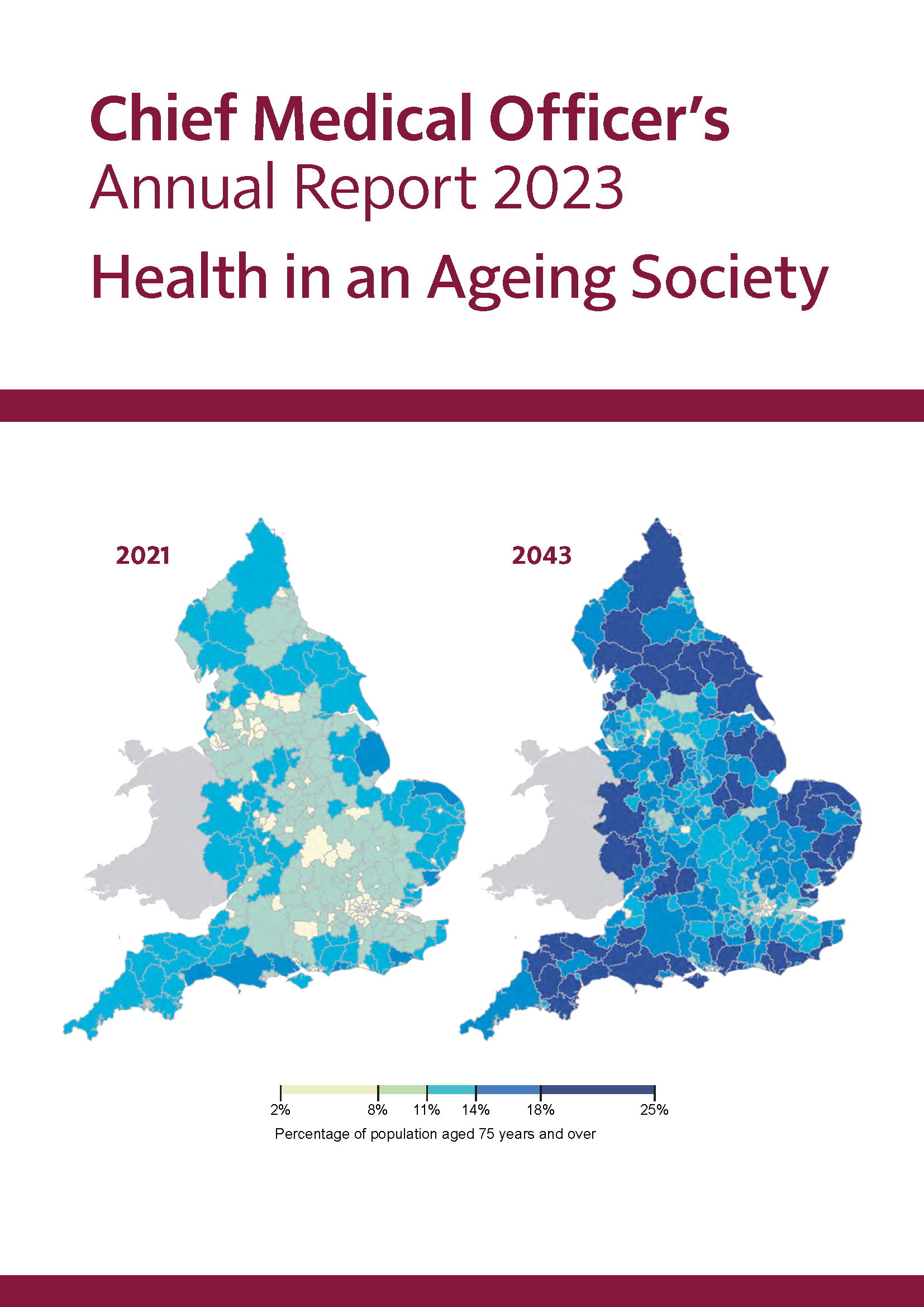
The Chief Medical Officer (CMO) for England, Professor Sir Chris Whitty, has today published his annual report for 2023, Health in an Ageing Society. The CMO’s decision to make the health of our ageing population his focus for this report highlights the need for a national policy and practice focus on improving quality of life for older people.
The BGS had the opportunity to contribute to this important report. It sets out two principal routes to improving the quality of life experienced by people in their later years. The first of these is about things which can reduce disability and ill-health, prolonging the period in good health before they begin to experience the effects of multimorbidity and frailty. The second is about things that can be done to adapt the environment in which individuals live as they age, helping to maintain their independence and freedom to enjoy their lives. The CMO describes the geographical concentration of older people in coastal and semi-rural areas, noting that health and social care services have not caught up with this changing profile.
At present, older people use health and social care services more than any other population group, accounting for around 40% of admissions to hospital and 70% of hospital bed days. This trend is set to continue – the number of people aged 85 and over will almost double by 2045. While more people are living for longer in good health, there is an ever-rising number of people who experience multiple long-term conditions. We need to plan for the effects of this population increase now and ensure that health and social care systems are set up with the needs of older people at the heart. If we get services right for older people, they are more likely to work well for the rest of the population.
There is a shortfall in the workforce to provide good quality care for older people. 43% of consultant geriatricians are due to retire in the next ten years and there are not enough new doctors being recruited into the specialty. This shortage is apparent across the multidisciplinary professions that deliver care for older people. The CMO quotes the BGS’s report: The case for more geriatricians to illustrate the need for more specialists in older people’s care. In a system designed around single-disease specialties, not enough healthcare professionals have the skills they need to care for an ageing population with increasing levels of frailty and multimorbidity. The CMO calls for the wider workforce to be equipped to provide good care to an ageing population with ever more complex needs.
The focus of the CMO on the important issue of health in an ageing society is very welcome and timely. He argues that maximising the health and therefore the life chances of older people should be a national policy priority, thereby enabling the provision of high quality health and social care services for older people, now and in the future.
Professor Adam Gordon, President of the British Geriatrics Society, says:
Population ageing is one of the biggest opportunities and challenges facing us globally. With this in mind, we welcome that this year the Chief Medical Officer has chosen to focus his annual report on the ageing population. We agree that people living longer lives is a triumph of public health, modern medicine and healthier lifestyles. The invaluable contribution of older people to society enriches us all. The Chief Medical Officer is also right to highlight the challenges associated with more people living with complex health and care needs, including increasing levels of frailty and multimorbidity. Inequalities are increasing across our society, with some people enjoying excellent health into their later years and others spending many years living in poor health. There are not enough specialists working in older people’s healthcare and not enough healthcare professionals have developed the right skills to care for this growing population group. The Chief Medical Officer’s call to recognise this as a major national priority is very timely – we are all ageing and we must act now to grasp this opportunity, ensuring that older people now and in the future are enabled to live healthy, independent lives for as long as possible."

